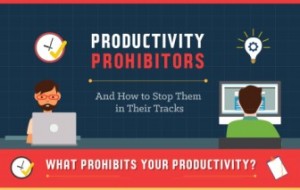I’ll Take Reality With Side Of Augmentation, Please
At least, that seems to be the upshot of a new survey from the International law firm Perkins Coie. The firm asked start-up founders, tech execs, investors and consultants about their predictions for both augmented (AR) and virtual (VR) reality. While VR had a head start, the majority of those surveyed (67%) felt that AR would overtake VR in revenue within the next 3 years.
The reasons they gave were mainly focused on roadblocks in the technology itself: VR headsets were too bulky, the user experience was not smooth enough due to technical limitations, the cost of adopting VR was higher than AR, and there was not enough content available in the VR universe.
I think there’s another reason. We actually like reality. We’re not looking to isolate ourselves from reality. We’re looking to enhance it.
Granted, if we are talking about adoption rates, there seems to be a lot more potential applications for AR. Everything you do could stand a little augmentation.
For example. you could probably do your job better if your own abilities were augmented with real-time information. Pilots would be better at flying. Teachers would be better at teaching. Surgeons would be better at performing surgery. Mechanics would be better at fixing things.
You could also enjoy things more with a little augmentation. Looking for a restaurant would be easier. Taking a tour would be more informative. Attending a play or watching a movie could be candidates for a little augmented content. AR could even make your layover at an airport less interminable.
I think of VR as a novelty. The sheer nerdiness of it makes it a technology of limited appeal. As one developer quoted in the study says, “Not everyone is a gadget freak. The industry needs to appeal to those who aren’t.”
AR has a clearly understood user benefit. We can all grasp a scenario where augmentation could make our lives better in some way. But it’s hard to understand how VR would have a real impact on our day-to-day lives. Its appeal seems to be constrained to entertainment, and even then, it’s entertainment aimed at a limited market.
The AR wave is advancing in some interesting directions.Google Glass has retreated from the consumer market and is currently concentrating on business and industrial application. The premise of Glass is to allow you to work smarter, access instant expertise and stay hands on. B
Bose, which believes sound is the best way to add content to our lives, is betting on a subset of AR, which it dubs Aural Augmentation.
And even Amazon has borrowed an idea from Ikea and stepped into the AR ring with Amazon AR View, where you can place items you’re considering buying in your home to see if they are a fit before you buy.
One big player that is still betting heavily on VR is Facebook, with its Oculus headset. This is not surprising, given that Mark Zuckerberg is the quintessential geek and seems intent on manufacturing our own social reality for us.
In a demonstration a year ago, Zuckerberg struck all kinds of tone-deaf clunkers when he and Facebook social VR chief Rachel Franklin took on cartoon personas to take a VR tour of devastated Puerto Rico. The juxtaposition could only be described as weird –a scene of human misery that was all too real visited by a cartoon Zuckerberg. At one point, he enthused, “It feels like we’re really here in Puerto Rico.”
You weren’t, Mark. You were safely in Facebook headquarters Menlo Park, California — wearing a headset that made you look like a dork. That was the reality.
(65)
Report Post




